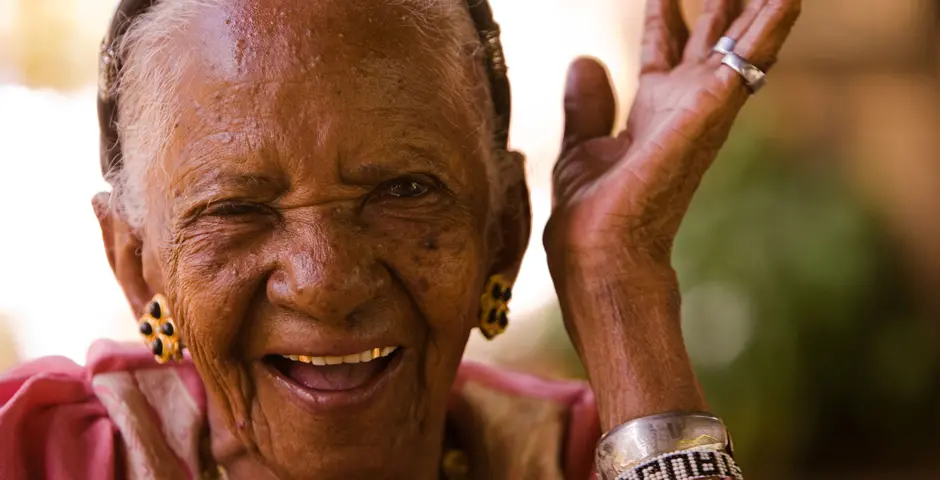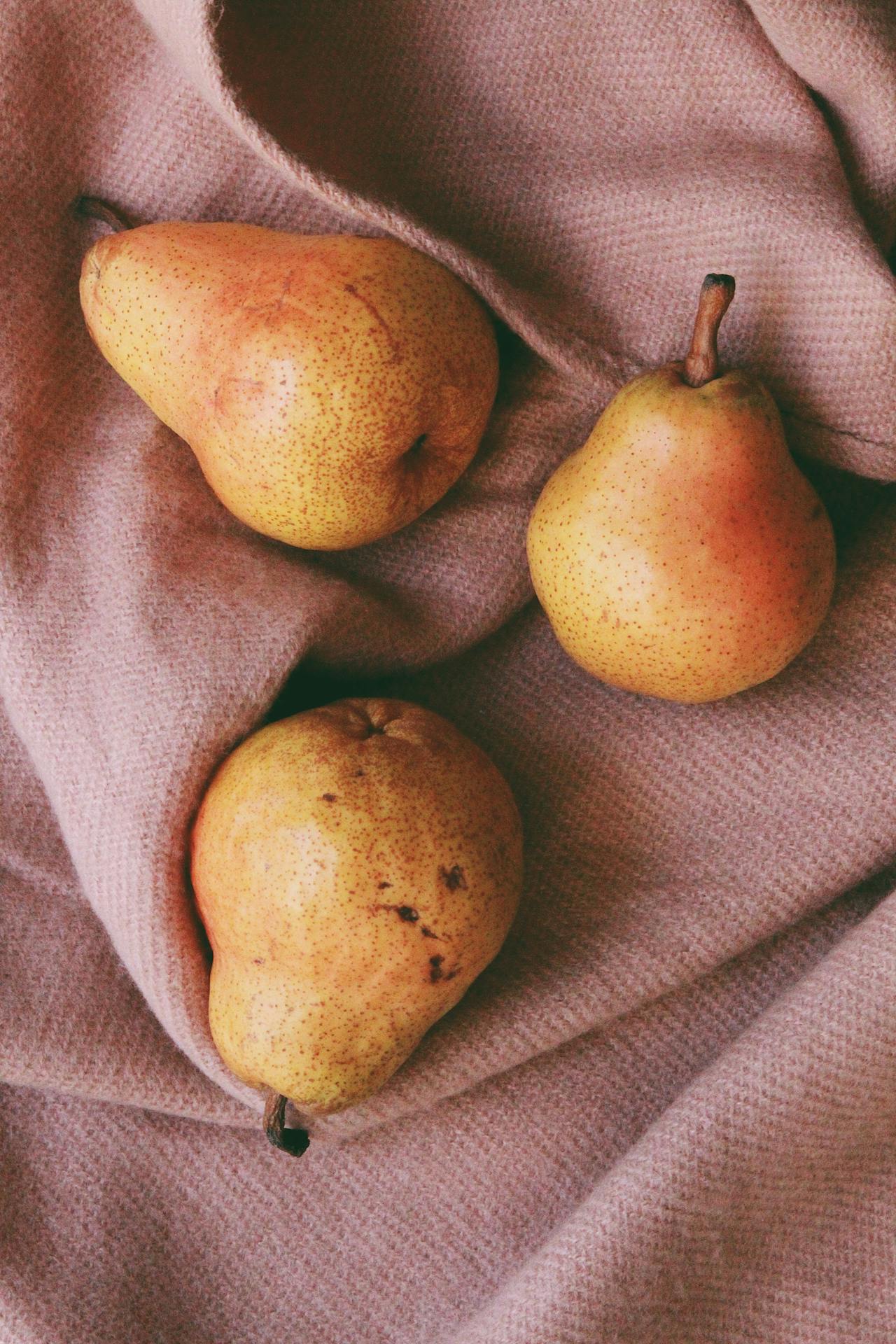In a recent interview, Queen Camilla’s son Tom Parker-Bowles implied that his stepfather, King Charles III, is reducing his meat intake after going through cancer treatment. He told Saga Magazine, “I eat meat, but I go easy on the red meat—as does my mother.” He continued, adding: “The King, after what he’s been through recently, is looking again at what—and when—he eats.”
Parker-Bowles didn’t refer to the King’s cancer diagnosis specifically, but he did mention the role food plays in health. “I’m no nutritionist, but I know that food is part of a body’s ‘medicine’. It knows when we’re having the right stuff,” he said.
The White House | Wikimedia Commons
Back in February, Buckingham Palace shared with the public for the first time that the King had been diagnosed with cancer. It did not specify which type of cancer he was facing, and it hasn’t elaborated since.
However, the King seems to now be getting closer to resuming his busy schedule. In October 2024, one senior palace official announced that the royal would be returning to official foreign duties in 2025. “We’re now working on a pretty normal-looking full overseas tour program for next year. Which is a high for us to end on, to know that we can be thinking in those terms, subject to signoff by doctors,” the palace said.
Table of Contents
Does King Charles eat meat?
Like Parker-Bowles, who told Saga that he was considering beef or “stuffed boar’s head” for Christmas dinner, the King doesn’t follow a totally plant-based diet. However, he has said in the past that he tries to cut back on meat for environmental reasons.
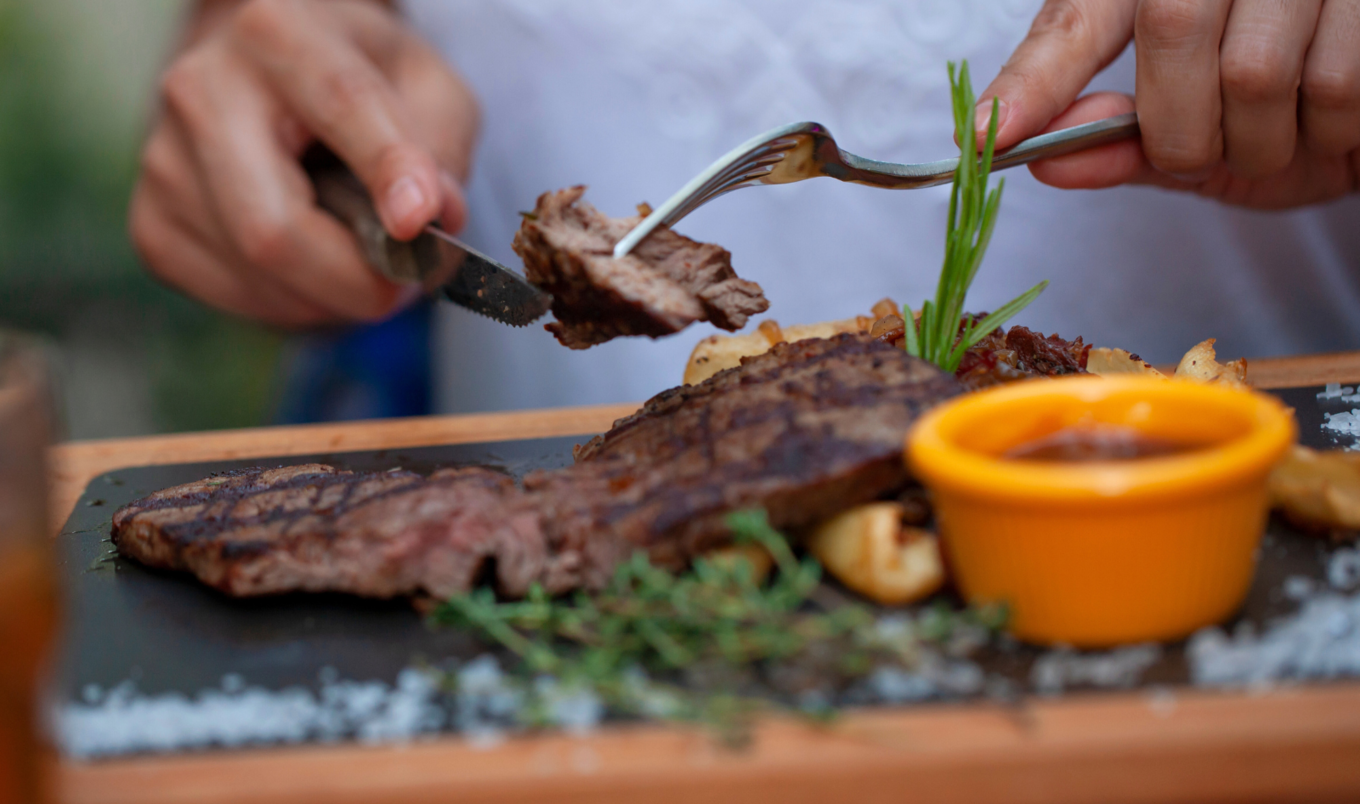 Canva
Canva
In 2021, he told BBC that he tries to abstain from meat for at least two days per week. “The business of what we eat, of course, is important,” he said. Speaking about reducing emissions, he added: “Now, I mean [reducing the consumption of animal products] is one way to do it—if more did that, you would reduce a lot of the pressure on the environment and everything else.”
This is similar to Meghan, Duchess of Sussex’s approach to diet. “When I’m filming, I’m conscious of what I eat. I try to eat vegan during the week and then have a little bit more flexibility with what I dig into on the weekends,” the King’s daughter-in-law once told Best Health Magazine.
As implied by Parker-Bowles, King Charles may now be reducing meat again—this time for his health.
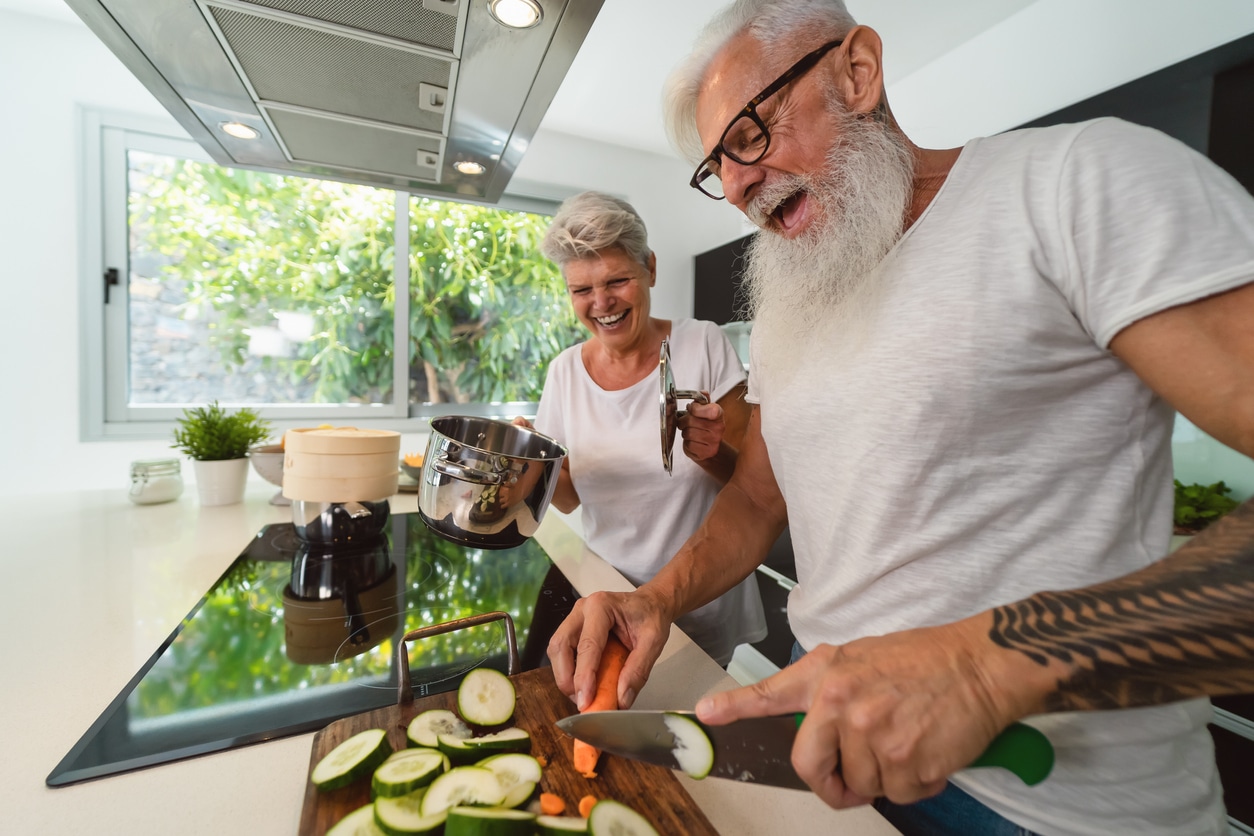 Getty
Getty
While the specifics of King Charles’s health journey remain private, a growing body of research indeed suggests that cutting down on meat—particularly red meat and processed meat—and switching to a more plant-forward diet can help to reduce the risk of many chronic diseases, including cancer, and aid in recovery.
What the research says about diet and cancer
In his interview with Saga, Parker-Bowles specifically mentioned reducing red meat, which is associated with an increased risk of cancer—particularly colorectal cancer.
Back in 2015, the World Health Organization first classified red meat as a group 2 carcinogen, which means it is likely to cause cancer. Processed meat is classified as group 1, which means it is known to cause cancer.
 Getty
Getty
This year, a new study revealed exactly why red meat might increase the risk of the disease. According to researchers from the Agency for Science, Technology, and Research and the National Cancer Centre Singapore, the risk seems to come from the iron in red meat, which activates an enzyme called telomerase. In a nutshell, this enzyme may help cancer cells to spread in the colon.
However, an abundance of research confirms that, unlike red meat, plant-based foods may help to reduce the risk of chronic diseases, including cancer. This is because plant-based whole foods, like beans, vegetables, fruits, whole grains, and legumes, are rich in plant compounds and antioxidants that help to tackle cell damage in the body.
Plant foods are also good sources of fiber, which helps to keep bowel movements frequent. This helps to reduce inflammation and rid the body of toxins, including carcinogens. In fact, according to the American Institute for Cancer Research, every 10 gram increase in fiber intake helps to reduce the risk of colorectal cancer by seven percent.
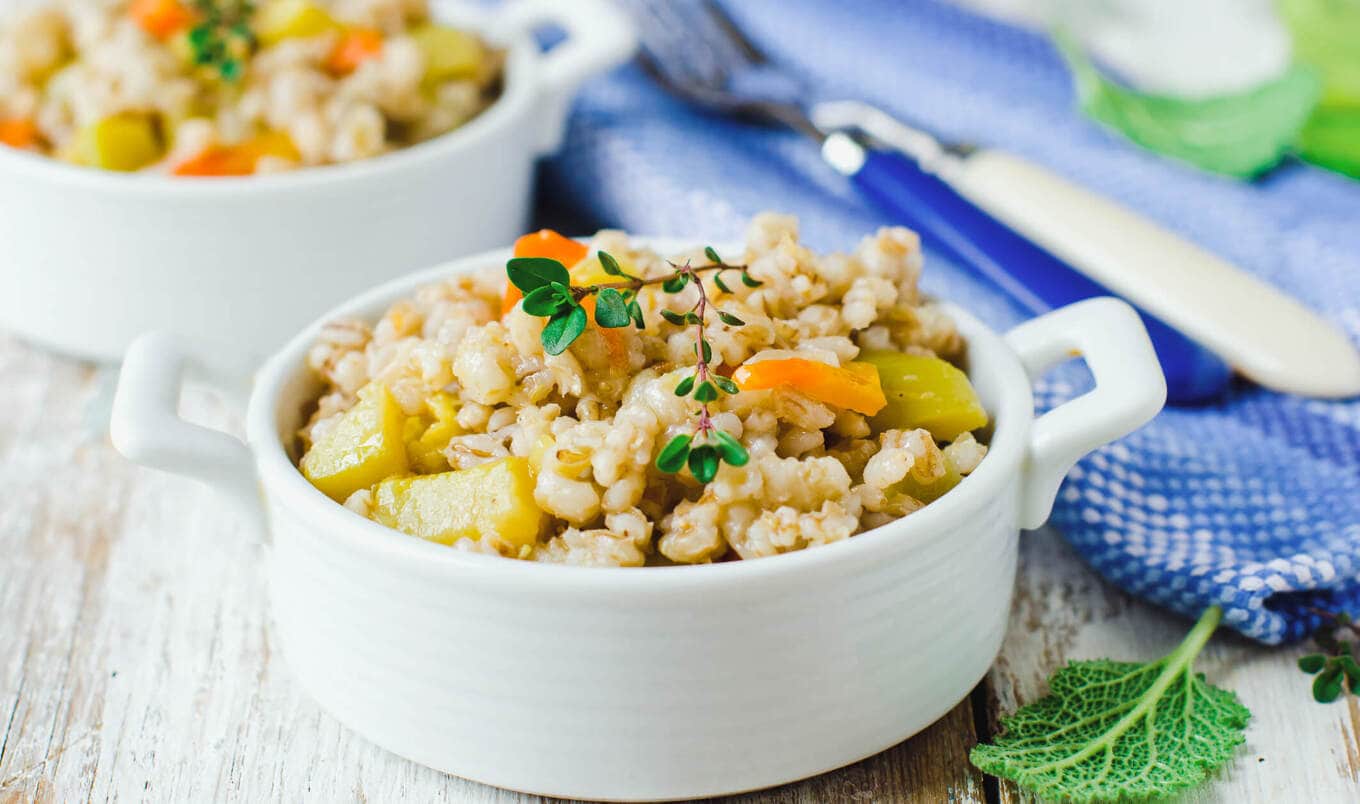 Teleginatania
Teleginatania
Plant foods aren’t just associated with a reduced risk of colorectal cancer. They have also been linked with a lower risk of breast cancer and prostate cancer. Plus, adopting a plant-based diet may also help with cancer recovery, too.
“Some of the best foods to eat during chemotherapy or other cancer treatments are plant-based proteins,” notes John Hopkins Medicine. “They offer the highest levels of vitamins and minerals.”
It’s important to note that while a plant-based diet may help to reduce the risk of cancer, it is not a guarantee that a person won’t develop the disease or experience recurrence. Other healthy lifestyle habits that may help to reduce the risk of cancer include regular exercise, maintaining a healthy weight, and getting plenty of sleep, but again, nothing can completely eliminate cancer risk.
“Switching to a plant-based diet can be a wise choice for reducing the risk of certain cancers,” Australian dietitian and doctor of food and nutrition Shy Vishnumohan, PhD., told VegNews. “However it is important to bear in mind that multiple factors contribute to cancer risk, including genetics, lifestyle habits, and environmental factors.”
She added: “It’s just one part of a larger picture of wellness. Life is like a stack of cards—while there is no magic bullet that will guarantee 100-percent immunity, making healthy food choices that are plant-forward can be powerful and stack the deck in our favor.”


